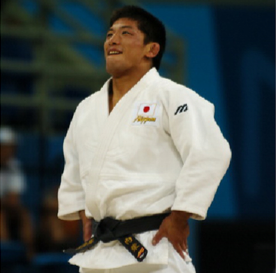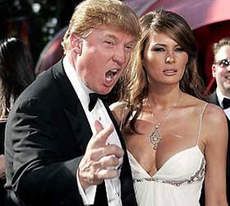"You received a score of 124 out of 147, which is the 94th percentile. Great job on that! That's one of the highest scores we've seen so far!"
When Lisa Williams and David DeSteno told this to their participants, they noticed a significant increase in perseverance on a difficult cognitive task. This intrigued them, so they fiddled with the dials to see what was going on. When they took out the "Great job" part and just told the participants they performed exceptional, they saw no increase in perseverance. When they put people in a generally positive mood by having them look at pleasant pictures, such as a wedding and a tropical landscape—again, no increase in perseverance. What was it about this particular phrasing that increased motivation?
The winning phrasing was effective because it activated one of our most deeply-rooted emotions: pride. Pride is receiving a lot of research attention these days, as researchers are increasingly realizing its potency. In a recent study, David Matsumoto and Hyi Sung Hwang distinguish pride from triumph, another deeply-rooted human emotion. Participants were in strong agreement about what pride looks like:

Pride may have evolved to motivate people to achieve social status in a socially valued domain. This emotion is not just any feel-good emotion though. Pride particularly makes people feel good about themselves. Children are quick to associate pride with domains in which they feel competent, and are driven to further pursue those domains. In contrast, those who continually receive negative feedback in a domain quickly lose their motivation for achieving in that domain.
But here's the paradox: pride is correlated with both positive and negative social consequences. Pride has always received mixed reviews. The ancient Greeks viewed pride as "the crown of the virtues" whereas the early Christian philosophers viewed pride as the "deadliest of the Seven Deadly Sins". Pride is quite the polarizing emotion!
To reconcile these different conceptualizations of pride, researchers have found it useful distinguishing between two different shades of pride: authentic and hubristic.
Authentic pride 

Authentic pride
Hubristic pride

Hubristic pride
Since authentic pride is related more to a focus on competence and mastery (mastery-oriented goals), whereas hubristic pride is related more to the drive to dominate and avoid incompetence (performance-oriented goals), researchers Rodica Damian and Richard Robins wondered whether these two forms of pride would also be linked to intrinsic and extrinsic motivation. It would make sense that those high in authentic pride would be driven by the sheer joy and enjoyment of engaging in a task, whereas those high in hubristic pride would be driven more by external rewards, such as money, power, and beautiful mates. Going even further, if authentic pride is indeed linked to intrinsic motivation, it may also be linked to creative achievement, since intrinsic motivation is highly linked to creative achievement.
This is basically what they found among a sample of 489 undergraduates. Authentic pride was significantly correlated with intrinsic motivation and self-reported creative achievement, whereas hubristic pride negatively correlated with intrinsic motivation, positively correlated with extrinsic motivation, and showed no relation whatsoever to creative achievement. Additionally, intrinsic motivation (but not extrinsic motivation), was directly related to creative achievement. Doing some fancy statistical analyses, they found support for the idea that intrinsic motivation mediated the link between authentic pride and creativity. In other words, authentic pride was related to creative achievement, in large part, because of its association with intrinsic motivation.
But that's not all. Digging deeper into their dataset, they found that not everyone with hubristic pride was lacking in creative achievement. For those already high in extrinsic motivation, there was a significant correlation between hubristic pride and creative achievement. Those low in extrinsic motivation, however, showed less creativity if they scored high in hubristic pride. As the researchers note, "extrinsic motivation may fuel creative achievement for individuals high in hubristic pride but inhibit it for individuals low in hubristic pride."
It seems like authentic pride, and its association with intrinsic motivation, is particularly conductive to creativity. But hubristic pride can also be conducive, if you're already driven by external rewards. These participants are just college students, so there definitely needs to be more research to see how these findings hold up among adult creators. Also, it's not immediately obvious how to reconcile these findings with other studies showing there is a dark side to creativity. For instance, another recent study conducted by Paul Silvia, James Kaufman, Roni Reiter-Palmon, and Benjamin Wigert found that creative achievement among adults was associated with honesty and humility: the higher creative achievers displayed lower levels of honesty and humility! I asked Silvia how he squares his findings with these findings. Here's his response:
"It sounds sort of zen, but I intuitively suspect that both brashness and humility are necessary for Big C [exceptional, professional accomplishments] creativity—you need both a sense of the grandness of your work along with the sense that it could be better."
No one said creativity is simple, or has a single cause. People may take different paths to the same outcome. At any rate, one thing is clear: pride plays an important role in fueling creativity.
© 2012 by Scott Barry Kaufman.
Follow me on Google Plus or Twitter.




